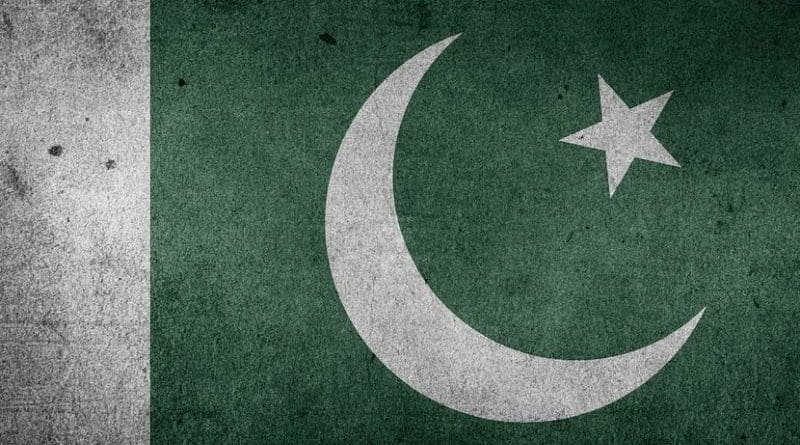Pakistan’s Latest Perfidy: Fudging Data On Terrorists – OpEd
You may have heard of how second hand car salesmen manipulate odometers of used cars so that prospective buyers can be beguiled by the ‘as good as new’ claim. You may have also heard of crooks in the corporate sector cooking the books by failing to record or improperly reducing liabilities in order to make a company’s financial results look better than they really are. But I can bet that you must not have ever heard of a country that’s been indicted for its complicity in financing terrorists, trying use hackneyed corporate tricks of fudging data to escape sanctions.
Castellum.AI, a New York-based start-up regulatory technology company that automates watchlist compliance, has released details that prove that Pakistan has just fudged its ‘proscribed persons list’ (PPL) of terrorists maintained by Pakistan’s National Counter Terrorism Authority (NACTA) in an obvious attempt to escape being placed on black-list by Financial Action Task Force (FATF). The data reveals that the NACTA list, which in 2018 had the names of approximately 7,600 terrorists on its roll, now has less than 3,800 –a whopping 50 percent reduction! What is even more surprising is that the name of Lashkar-e-Taiba commander and Mumbai attack mastermind Zaki-ur-Rehman Lakhvi is missing from this list.
Whether this crude attempt will be able to bamboozle the global money laundering and terrorist financing watchdog is debatable, but what’s really surprising is that instead of acting firm against terrorists, Islamabad is actually giving ‘clean chits’ to thousands of them by striking off their names from the NACTA list! Whereas, what Islamabad is doing is absolutely unethical, but it would be wrong to say that Islamabad has never tried to end the patronage being provided to proscribed terrorist groups by Rawalpindi.
Readers would recall that on October 6, 2016, Dawn newspaper carried an explosive report (Exclusive: Act against militants or face international isolation, civilians tell military) written by Cyril Almeida that created a massive political storm in Pakistan.
In this report, Almeida mentioned about how “In a blunt, orchestrated and unprecedented warning, the civilian government has informed the military leadership of a growing international isolation of Pakistan and sought consensus on several key actions by the state.” This made the army see red and the Prime Minister Office (PMO) was forced to rubbish this news report by calling it “fabricated.”
However, by issuing a statement that “The published story was clearly violative of universally acknowledged principles of reporting on National Security issues and has risked the vital state interests through inclusion of inaccurate and misleading contents which had no relevance to actual discussion and facts,” the PMO has unwittingly ended up accepting the veracity of this news report.
Under pressure from Rawalpindi, the PMO did order an inquiry into this incident (which became famous as ‘Dawnleaks’ and while the then Prime Minister Nawaz Sharif approved recommendations of the inquiry committee, the army through its media chief Maj Gen Asif Ghafoor cocked a snook at Sharif by tweeting “Notification on Dawn Leak is incomplete and not in line with recommendations by the Inquiry Board.”
But things didn’t stop here- by ending his tweet with the curt decree that “Notification is rejected,” the military spokesperson unambiguously conveyed the army’s message to the nation in general, and Sharif in particular that in Pakistan it’s the writ of Rawalpindi and not Islamabad that runs.
Seeing how ‘bad luck’ dogged Sharif after this scandal and ended with his incarceration, Prime Minister Imran Khan wisely chose to hand over the task of dealing with the issue of army patronage to terrorist groups and its international ramifications on Pakistan exclusively to the Generals. Though army chief Gen Qamar Javed Bajwa has been able to use Rawalpindi’s influence over the Taliban which is fighting the US led coalition in Afghanistan, but for how long can he run with the foxes and hunt with the hounds is yet to be seen.
While US President Donald Trump’s tearing hurry to get American soldiers back home may egg on the State Department to overlook Rawalpindi’s transgressions on this account, but whether the FATF play ball is unclear.
With three countries (China, Turkey and Malaysia) supporting it, Pakistan meets the minimum requirement of having three votes in its favour which is necessary to avoid being black listed. But with Rawalpindi openly romancing certain terrorist groups, it may not be able to muster 12 out of 39 votes essential for getting out of the grey list, and it’s here that India and Afghanistan need to build up consensus on pressuring Pakistan into ceasing its patronage of terrorist groups.
What New Delhi needs to impress upon the international community is that fudging figures in order to mislead the world is a classic example and irrefutable proof of Pakistan’s duplicity on its much hyped ‘war on terror’.
Furthermore, it must be clarified that Pakistan can no longer be let off the hook as it’s India that’s bearing the brunt of Rawalpindi’s proxy war through terrorists. It has to be made absolutely clear to the world that New Delhi’s concerns on Pakistan exporting terror is not a matter of petty politicking or diplomatic posturing but an unavoidable duty since it’s India that’s been suffering the grave consequences of terrorist violence for more than three decades.
Tailpiece- Instead of banking solely on the goodwill of the international community to restrain Pakistan from patronising terrorists, New Delhi should simultaneously focus more on building up its capacity for meting out swift and prohibitive retribution to any acts of terrorism emanating from Pakistani soil. We need to apprise the world in no uncertain terms of our inalienable right to institute appropriate punitive actions in national interests and for securing safety of Indian citizens.

